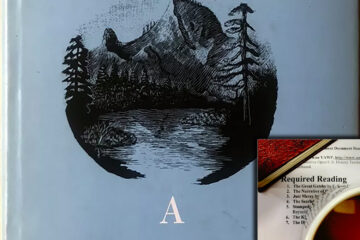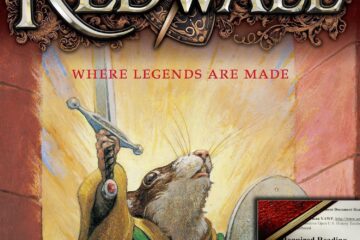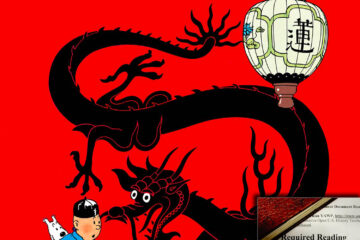What is America analysis by Jaden Hwang
Throughout 1850-1930, America upholds many themes as the U.S. evolves from the Wild West to the industrialization of major cities. As the roles of women and minorities in society grow, America undergoes significant changes for the better. Despite these developments throughout this period, problems arise as the Chicago riots, unethical work treatment, and imperialism remain prevalent in America. Without 1850-1930, America would never progress to the equal nation it is today, as the U.S. would never resolve these issues and become the beautiful nation it is today. America in 1850-1930 symbolizes personal freedom, glory for diligent workers, and a clean slate for immigrants, as Americans still uphold these themes to this day.
Despite the norms set by society, America offers freedom to each individual as they are free to wander in the fields of the West. Throughout the Wild West era, personal freedom engrains itself in many lives as many artists took inspiration from the lawless nature of this era. For example, Harvey Dunn takes inspiration from this era to create his iconic painting “The Prairie is My Garden.” In the illustration, two children pick flowers near their prairie home as the mother shields her daughter from danger with a knife. Dunn portrays the mother as a bold figure despite the common association of men protecting their children throughout this time. Dunn emphasizes the freedom of this family through this gesture, as the Wild West does not follow the sexist rules of normal society, instead, Americans follow their own desires. Meanwhile, Cole Porter illustrates a slightly distinct perspective of the Wild West through his song, “Don’t Fence Me in.” Porter views the Wild West as an escape from the norms of society as he sings about the beauty of America. While Porters sings, he yearns to “ride through the wide-open country [he] love[s,] [while begs not society to d]on’t fence [him] in.” Unlike Dunn, Porter illustrates the simplicity of freedom in America as he notes the beauty of nature and the bliss of a simple life away from the judgment of others. Although the Wild West is a primary example, freedom exists throughout the entire span of America, even to this day.
While the tyrants of society bask in their easily acquired luxuries, it is the working man that maintains the republic as they lead America to a better future. As the colonists rebel against aristocratic England, America adopts a democratic government that revolves around the diligent workers of society so that they can surpass their oppressors as a nation of harmony and equality. Theodore Roosevelt exemplifies the American theme of the working class as he reforms the nation throughout his time in office. While Roosevelt lectures at Sorbonne University, he compares the diligent citizen to a man in the arena as he notes, “It is not the critic who counts; … [t]he credit belongs to the man who is actually in the arena,……………………………………………………………………….. the [one who actually] strive[s] to do the deed.” Despite his origins from an affluent family, Roosevelt acknowledges and commends the laborers of society for their innovative work. Meanwhile, Roosevelt scorns the noblemen as they symbolize the critic through their inherited positions. Roosevelt emphasizes
the importance of the upper-class to function as a “man in the arena” as they should contribute to society, unlike the scornful critics who drag society through their selfish actions. Despite the disdain of the noblemen, the diligent worker remains a symbol in American history as they motivate others to follow in their footsteps. After the assassination of Abraham Lincoln, many Americans mourn the loss of a “man in the arena,” as the legacy of Lincoln is remembered by many today. One of the mourners, Walt Whitman, writes “O Captain! My Captain” as a commemoration of the contributions of Lincoln. Whitman depicts Lincoln as a ship captain as he remarks, “our fearful trip is done, / [t]he ship has weather’d every rack, … / [while eyes fall] on the deck [where] my Captain lies, / [f]allen cold and dead.” This quote highlights the remembrance of diligent workers as Lincoln fulfills his quest and dies, yet he is still remembered as a symbol of hard work. Despite the desire for relaxation for many Americans, those who work hard to uphold society receive the prosperity they deserve in the end.
As the forefathers set foot upon America for the first time, they would begin with a clean slate as they build upon a nation of immigrants. America symbolizes hope for many immigrants as they believe they desire freedom and gratitude for the diligent workers that America provides. Jacob Riis, a social documentary photographer, notices this as he portrays the immigrants in most of his photographs. In the “Lower East Side tailor shop” photograph, Riis depicts a family of immigrant tailors as they work in their very home. Despite the tedious work environment, one of the girls smiles at the camera as she tailors a suit jacket. During this period, many families worked in perilous factories as work laws were not heavily enforced, but this family made a safe environment as they improved their quality of life, as shown in the photograph. Although many immigrants never found the same success as the family in the photograph, America functions as a launch point for the ambitious immigrants that come to make a name for themselves.
Overall, America symbolizes hope for many around the world as the U.S. builds upon a foundation of freedom, honor for workers, and immigration. 1850-1930 is crucial to the modern success of America today as the U.S. receives global recognition due to World War 1 and the reconstruction after the war. America may not be a perfect nation, but it has the qualities of a utopia as it slowly strives to become the perfect utopia for everyone.
America is Change by Maggie Foster
America is change. America, since the dawn of time, has changed over and over.
Between the 1850s and the 1930s America was drastically different and changing constantly. This change can be found in music, speeches, stories, and many other forms of expression. The change brought by all of these different forms of literature helped shape the nation into what it is today. Some of the most notable changes were brought by “The Yellow Wallpaper”, “The Jungle”, The Imperialist Tailor, “Gettysburg Address”, and My Country ‘Tis of Thee. All of these pieces brought some new change to the nation.
“The Yellow Wallpaper” was a short story written by Charlotte Perkins in 1892. This short story brought to light the medical practice called rest cure. This was a common practice during the 1800s in which after birth a woman would be secluded and isolated from the rest of society. In the story, the woman quickly loses her grip on reality because she is stuck in this dreary, prison-type environment for months on end. In the end, she fully loses it and kills herself. This story helped change America in part because it told the nation about this medical practice that was more hurtful than helpful. Because of this work, people became more aware of what was going on with regard to medical practices toward women. This story also helped pave the way for women because the story showed how her husband regretted everything at the end of the story and tried to save his wife that had gone past her mental limit. Altogether, the short story
“The Yellow Wallpaper” changed America’s perspective on medical practices and how women were viewed.
Another short story that changed the way America viewed a certain group of people and that also changed the way food was processed was “The Jungle” by Upton Sinclair. This short story was written from a personal experience that Sinclair had when he went to investigate how food was processed in the 1900s. This short story talks about how horrible the working conditions such as their fingers used to “be eaten by the acid”, how the “germs of tuberculosis” used to infect them and the food, and how their hands were so cut up and bloody “each cut represented a chance for blood poisoning” (Upton). The workers were more often illegal immigrants who could not do anything to change the working conditions because they were afraid and getting kicked out. With Upton’s story and Theodore Roosevelt the Food and Drug Administration was created. This changed the way Americans looked at their food and people started to care how they were getting their meals. The creation of the Food and Drug Administration caused a huge shift in America because people had concern about where their food was coming from and the dangers that the workers had to endure in the food industry.
In addition to those short stories, political cartoons also changed America frequently. One that is important to note is The Imperialist Tailor. The Imperialist Tailor was a cartoon created by John Pughe in 1900. This image contains Uncle Sam getting fitted for a new outfit. The reason he is getting a new, fitted outfit is that he keeps expanding. This metaphor is meant to represent how America is quickly becoming a world power and acquiring many new land and territories.
The tailor is using cloth that has words on it such as “enlightened”, “foreign policy”, and “rational expansion” (Pughe). In addition, the stripes on his pants are US states that were either bought or acquired by war. The reason why this cartoon represents a change in America is that it shows the change in land and territory. America is growing and changing, whether it is for the better or not is debatable, and this shift in American land created the idea of what it was to be American. In summary, this cartoon was created to show the rapid expansion of the United States of America and this cartoon changed the idea surrounding how the land of America was changing, but the main idea of being American was starting to form.
A speech that had a great impact on America was the “Gettysburg Address”. The “Gettysburg Address” was given by Abraham Lincoln during the civil war, and the main idea of his speech is that the nation needs to be united. During this speech, Lincoln is standing on a bloody, grotesque battlefield to get his point across that “… these dead shall not have died in vain…” (Lincoln). That line means that the people of America need to change their ways so that those soldiers did not die for nothing. Lincoln wants people to remember that the nation can only be fixed if all Americans unify. He believes that “this nation, under God, shall have a new birth of freedom…”, and the purpose of him saying this is to get the idea of change across to everyone. With the change, the country can begin to heal and unify. Essentially, Lincoln gives this speech to tell Americans that without unity and change this war will have meant nothing and the country will continue to break apart.
Another piece of literature that helped change America is My Country ‘Tis of Thee. The reason, why this song is notable, is because there are three different versions of it. There is the original version by Samuel Francis Smith, there is the abolitionist version by A.G. Duncan, and there is a version by W.E.B Dubois. The reason why these three different versions represent a change in America is that all three versions share some similarities but they all also hold many differences. For example, the abolitionist version has two other verses added on that are not included in the other two versions. These last two verses talk about how slavery is a stain on the nation’s freedom. Some lyrical similarities that each song has is that iconic first line “My country ‘tis of thee”. The reason why these three versions represent a change in America is that all three have the ability to express their viewpoints on America, and this leads to people being heard and felt seen because this iconic song is made more relatable for them. In short, the three versions of My Country ‘Tis of Thee created a change in American society because of the three different viewpoints of each composer.
In closing, literary works such as “The Yellow Wallpaper”, “The Jungle”, The Imperialist Tailor, “Gettysburg Address”, and My Country ‘Tis of Thee created a change in American society. These works created a shift in perspective, unity, and understanding in America.


